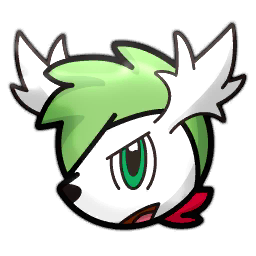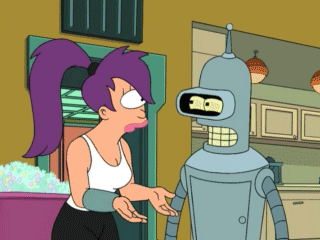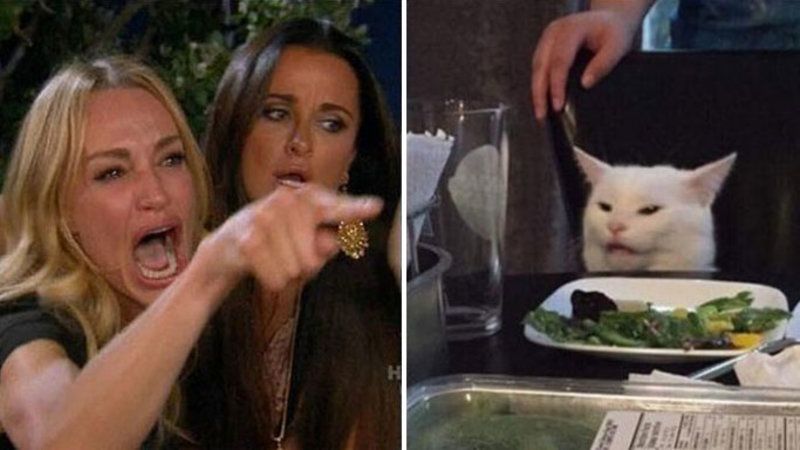- Partners
-
No Quarter
A decade or so before the world goes screaming to hell in a handbasket, an evening in Nina’s Saloon.
This fic was written as a prize for @unrepentantAuthor for Review Blitz.
.
.
A decade or so before the world goes screaming to hell in a handbasket, an evening in Nina’s Saloon.
This fic was written as a prize for @unrepentantAuthor for Review Blitz.
.
.
Outside of harvest season, when half the world seemed to roll through Frontier Town, Nina’s Saloon rarely reached capacity. There were the regulars, of course: withered old Maractus Jed, hunching in the light that strained through the saloon’s irregularly replaced window paper; the aipom twins, always ready to go a round of sticks and feathers with weighted dice; silent Heracross Hank, already on his third whiskey—well, no one held it against him, not after how his husband passed so sudden in the winter; and Emolga Ada, gnawing loudly at her bowl of nuts, who proclaimed herself a story-teller to everyone she met (but obtained less kind epithets from her involuntary audiences).
On Friday evenings, the workers came straggling in, sweaty and steaming as the sun simmered down. Girafarig Nina clomped between them, guiding mugs through the air with a mild psychic and fielding complaints from the growing crowd.
“Your ale’s hotter than a magmar’s ass tonight, Nina.”
“Can’t change the weather, can I, Jeremy.”
“Gracie always kept the ale cool.”
“Well, Princess Gracie’s moved on to greener pastures, hasn’t she.”
The glaceon had taken off before the real heat set in, and Nina still hadn’t forgiven the little chit for it. She rounded another table and came upon the only faces she didn’t recognize—strangers, and two of them at that. The first fellow was a jumpy monferno, who had her repeat the drinks menu twice before ordering a plain mug of ale.
The second stranger was properly strange. He wore a starched cravat that climbed the length of his skinny neck and a dark overcoat that covered the rest of him, long in the sleeves and sweeping to the floor. A top hat sat on his head. Between cravat and top hat, the only visible anatomy was a pair of oversized, yellow-lidded eyes and a jutting blue snout—an inteleon.
Nina didn’t make a habit of lingering on her customers’ eccentricities, but the whole get-up left her perplexed. She was sweating buckets in her simple bustle and wide-sashed shirt. For a water-type, in this heat—well, fashion made folks silly, and that was a fact.
The inteleon raised his head long enough to order a club soda in a reedy, listless voice, then went back to hunching over the table. She wondered vaguely what had brought him here and where he was going, but a barkeep learned to keep unwanted questions to herself.
Frontier Town, they called it, but it hadn’t been the frontier for a long time, not even when she’d first arrived as a calf, hitched to a wagon that had broken down on the outskirts of town. A stretch to call it a town, that scattered collection of tents and huts, their wood scavenged from the abandoned wagons that littered the plains.
They’d camped there three nights in the velvet darkness, broken only by the occasional yellow glint from the hilltops. The ever-watchful Escarpa clan, Nina knew now. But back then, the eyes had seemed as threatening as they were inexplicable. She had huddled by the cinders of the campfire and, for the first time since fleeing home, sent a silent prayer to Za’atal, the first girafarig, who stood so tall that each time he woke he knocked the moon out of the sky. From his towering height, he saw all the evil in the world and stomped it out with iron hooves.
By the morning of the third day, it had been decided, not out of any great conviction, but from sheer, all-consuming exhaustion: their journey west was over. No one had bothered asking Nina whether she wanted to stay or go.
If they had asked, she wouldn’t have known how to answer. “Take me west,” she had demanded, because west meant movement: it meant being so bone-weary from the day’s march that you slept without dreams through the night. It meant a journey without an end—only, every journey ended. Every gallop slowed into a walk. Sometimes Nina thought that was the wisdom they shared, everyone who had settled here on their way to somewhere else. It was their mutual, unspoken secret: your destination is just the last place you stop.
“Barkeep!”
Nina shook off her contemplative haze and loped over to take the batch of orders. Four decades had brought her from serving girl to queen of her own establishment. It didn’t pay to dwell on the past. The new arrivals included Medicham Bartholomew—Nina double-checked that her psychic sense was well and truly locked down. It was never pleasant to catch second-hand drunkenness off her customers.
As she lugged out another pitcher of sangria, she noticed the monferno signaling for a refill.
“Pay as you go,” Nina grunted at him. She wanted to see some coin before she let him start a tab. His spiffy scarlet hat looked new, but with strangers, you never could be sure. “Two quarters for the first one.”
The monferno’s companion lifted his head. His eyes snapped onto her face.
“Barkeep,” he said sharply. “Those gentlemon were only charged one quarter.”
His stick-like finger jabbed towards a nearby group of builders.
Taken aback, Nina stared. Her saloon didn’t have any prices up on the walls: the locals had their rate, and passersby had theirs. That was just business.
“Different size,” she blustered. And when the inteleon’s gaze tracked coldly and precisely from the monferno’s mug to the five identically sized ones at the builders’ table, she extemporized, “Different vintage.”
“It’s true,” Drilbur Bengy pitched in from the table. Nina could have kissed him right on the tip of his wet, disgusting nose. But her friendly feeling curdled a moment later, when he added, “Mine tastes like straight ponyta piss. You get what you pay for.”
And he winked.
Laughter gusted through the bar. Nina nailed each of her regulars with a glare. Ponyta piss her left hoof! If they wanted frou-frou ciders, all they had to do was trot on over to the Aspens’s place and waste a week’s working wage on a cutiefly-sized cup of mashed berries. You get what you pay for, indeed!
The monferno laid a quelling paw on his companion’s arm.
“See, Nolan? Not a problem.” He chuckled nervously, becoming aware of the crowd’s new interest. “Not a problem,” he repeated in a louder voice, as if that would be enough to disperse the accumulating gazes.
Nina knew better. The strangers had seized the spotlight and the saloon wasn’t about to let them off the stage.
“Traveled a long way, have you, sirs?” a nearby worker began.
“How about a game of chance, sirs?” chorused the aipom twins.
“Mighty hot in that coat, aren’t you, sir?”
But one voice rose above them all.
“This is a famous place, you know,” the voice piped from the rafters. Emolga Ada glided into the air and landed on the edge of the strangers’ table, her tiny arms splayed out theatrically. “This is, in fact, a very historical place.”
The saloon became busy with silent eye-rolling.
Maractus Jed, who had shed his manners along with final blossoms when he turned seventy, didn’t limit himself to silent commentary. “Yer full of shit, Ada,” he called out, backed by a few encouraging whoops.
The emolga adjusted her bowtie. “Au contraire. A pity your sedentary lifestyle has limited your perspective, my dear Jed.”
“Oh, let her say her piece,” someone else called out, and the muttering gradually subsided.
“You’ll have to forgive them,” Ada said primly to the strangers. “They aren’t very well educated.”
This remark brought forth a fresh indignant roar, but the little emolga had the patience of a steelix.
“Right,” she said, once the table-pounding had subsided. “Where was I? Ah, yes. I’m sure educated gentlemon such as yourselves are apprised and aware of those significant deities, variously called the Guardians of Progress and Truth, the Harmony Trio, and the Tao Dragons. And it would not be new knowledge to such distinguished persons, that while the souls of these hallowed beings are, without doubt, eternal, their bodies are less able to withstand the harsh winds of time. So it came to pass that Zekrom the Enlightened felt her body weakening and sensed that the time had come to seek out a new host. Had I more time, I would regale you with the full wonder of her travels, which were beset with both dangers and marvels—”
A few audible groans rose from the nearby tables.
“—but, not wishing to trespass upon your inestimably valuable time, sirs, I will be brief.” She sucked in an eager breath. “It surely has not escaped your notice that these lands are home to more folk than the esteemed inhabitants of our very own Frontier Town. Perhaps you sighted these noble savages as you crossed the highlands—the dignified and dangerous Escarpa Clan, who have prowled these plains since time immemorial, heedless of the progress of civilization and the advances of rational and right-thinking folk. It saddens me, as a fellow mon of electrical persuasion, to witness the state of them, adorned only with crude beaded bracelets and living only with the most basic of amenities. But there is no denying, sirs, that they are a strong and hearty folk. And there is one among them whose name still strikes terror into many hearts: I speak, of course, of the famed Sierra Escarpa!”
An uneasy murmur rippled through the listening crowd. The inteleon slowly raised his head.
“Ah hah! I see the name is not new to you, esteemed sir! Yes, that daring troubadour does indeed hail from the wild reaches of Frontier Town. Her tale, told right, would fill several lengthy tomes. Raised rough and wild, and it is true, most rough and wild in both appearance and manner, she nonetheless possesses within that fearsome exterior a heart of beating gold. When she was young, she ventured far and wide in the company of a human-spirit braixen—another name well known to Frontier Town, for he is, of course, our very own Sheriff Jesse. Together, they fought the most dastardly and vicious of evil-doers and regained several sacred relics of great significance. But I digress,” the emolga said hastily, as a few of her listeners mimed exaggerated yawns. “All this to say, that it is no surprise that Sierra Escarpa’s exploits reached even the ears of the gods.
“Great Zekrom descended among the barren scrapings of the Escarpa clan—oh, what would I not have given to witness it first-hand! The sky blazed like a living diamond and all the air burst with glorious crackling light. The Escarpans, I must disclose, were not overawed by this display. They are a sober-spirited people, though of course prone to the fits of violence and derangement that are the lamentable burden of barbarous folk. But the Escarpans knew a great goddess when they saw one and made her an energetic show of honor. A great feast ensued—one doesn't like to inquire too closely into the fates of passing travelers when the Escarpans make merry! But when all this festivity had wound down, the goddess came to the point.”
“Wish you would!” Jed called out as she paused for breath.
Ada directed a glare at her heckler, but didn't break stride.
“‘Noble Sierra Escarpa,’ spake the goddess, ‘you are fierce of body and true of heart. Will you not join your strength with mine and be my wings and my spark?’
“What greater honor could be imagined? What more could a child of the rough scrublands aspire to, than to assume the form of a god? After all, the Lightning Dragon is not your run-of-the-mill tree-shaker. She stands for the very light of civilization, the pinnacle that all right-thinking mon aspire towards. She is the light-house that guides the way across the riotous sea of primitive anarchy.
“But Sierra Escarpa faced the goddess and in a low voice like the rumble of the earth—she refused.
“‘But why?’ asked the baffled goddess. ‘What is it you have here that surpasses the life of a living god?’
“Sierra Escarpa, who, unlike your humble narrator, does not enjoy the capacity for eloquent and flowing speeches, answered her with three simple words:
“‘Husband. Child. Clan.’
“And the goddess understood! Sierra Escarpa had found her own path to civilization—the love of a good and educated man. If she left now, she would not be able to share those gifts with her progeny and lead her proud and savage folk into the light of the new age. For that, she was willing to sacrifice the life of a god.”
The emolga paused to revel in her audience’s momentary silence. “I tell you, I heard this tale straight from the mouth of Sierra Escarpa herself—”
Like a bursting dam, the saloon broke into a clamor.
“Complete, utter poppycock!”
“Frankly, it’s embarrassing.”
“Ada, she’d disembowel you as soon as look at you.”
The emolga spun to face her accusers. “Ask her! Ask her! She won’t deny it.”
“No, she won’t, and that’s because she never says a damned word.”
Ada huffed and turned back to the strangers. “Kind sirs,” she said in a sweeter tone, “if this tale of gods and love has lifted your spirits and delighted your souls, a quarter for a hard-working bard would not be remiss.”
The inteleon stood.
He was tall—no longer hunched, the tip of his tophat scraped the rafters.
“Love,” he sneered, and spat onto the floor. “Bard, you feign an interest in science, so I will speak to you scientifically. You describe to me a pokemon who has partnered with a human, going forth to accomplish great feats. But you err gravely to credit her for those feats and err inexcusably to call that partnership love.
“By now the phenomenon has been fully chronicled and understood: a pokemon in the presence of a human gains rare benefits. Her strength doubles. Her endurance grows. New vistas open before her, vistas of power she could never have reached on her own. And what does such a pokemon give in exchange for this elevation? She gives nothing except the feeble, falsifiable coin of sentiment. You see, what I describe is parasitism, not partnership.”
“Easy, Nolan,” whispered the monferno, his smile wide and fixed. The longer Nina looked at it, the more it resembled the rictus of a skull.
“Parasitism,” repeated the inteleon. His eyes shone like lanterns without shutters and something hard and cold emanated from him—Nina realized with a start that she’d let the guard on her psychic sense slip. It was like a mallet beating against her mind, this emotion that was blunter than disdain. He hated her, she thought as their eyes met, but he hated her without knowing her: she represented something wholly abhorrent to him.
“Here now,” she heard an unsure voice begin, “don’t think the sheriff would approve your talking like that, sir.”
The inteleon’s face went blank. “A deluded man is like a drunk. But one day he will sober. Come on, Dakota. There’s nothing for us here. Barkeep. What do we owe you?”
Nina felt sick. Her head swum and her legs, always so steady, seemed ready to give in. But with a sudden burst of mutiny she flared her nostrils and said, “Dime for the soda, sir, two quarters for the beer.”
He threw down the change with a dismissive clatter, and then they were gone. The last she saw of them was the inteleon’s top hat, lit like a flaming hilltop by the final beams of the sun.
It was a subdued evening, after that.
“Strange folk,” each mon murmured as Nina refreshed their mugs. “Strange folk,” and no more. Even Ada brooded tight-lipped in the rafters.
When the last stragglers had been chased out, Nina puttered around the saloon, washing mugs and straightening chairs—all her usual chores, but performed under a cloud she couldn’t seem to shake. Periodically, she glanced out the window, where the night was sweltering and perfectly still. For the first time in decades, she wondered about the world that lay beyond the town limits.
And despite herself, she felt afraid.
Last edited:













